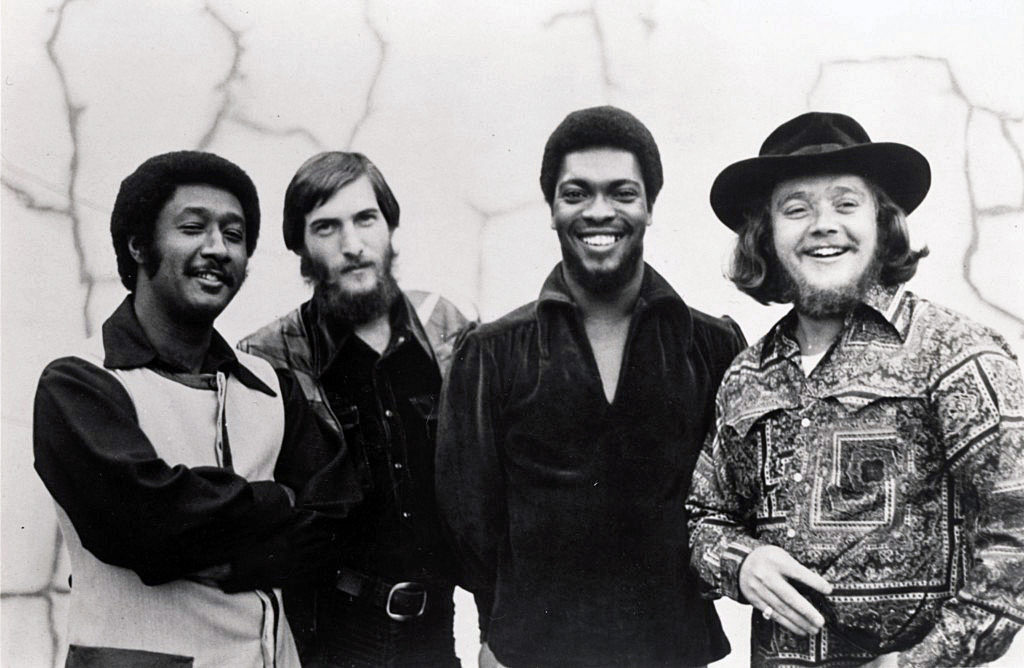Expect Stax Hits from Booker T. Jones
- Share
- Tweet
- Pin
- Share

The year is 1962. Booker T. & the M.G.’s are a sensation with “Green Onions,” recorded on the Stax label in Memphis. The record is climbing both the pop charts (ultimately reaching No. 3) and R&B (a code word of the time for black) charts, so, naturally, the upstart label wants to take advantage now that it at least has a finger in the pie and sends the band out on the road to cash in on the success of the instrumental.
But the man with his name at the front of the band, Booker T. Jones, didn’t have time to help cash in because he had to uphold the family tradition.
“I was pretty focused,” Booker T. Jones said in a recent telephone conversation in advance of his appearance at the Winter Blues Fest at the Door Community Auditorium, Nov. 3-5.
“My grandfather was a teacher down in Mississippi. He built his own school,” Jones said. “And all of my grandfather’s kids went to college, all of them. It was just a given that all his grandkids would go to college, too. I was set to go to Indiana University and I had saved $900 toward that purpose by the time I got to 11th grade. I didn’t veer from that. Even when we recorded ‘Green Onions’ and had a hit. I didn’t veer from that family tradition.”
But he adds that it was after strong objections, especially when “Green Onions” was sweeping the nation, with Jones’ soulful Hammond B3, Steve Cropper’s precise and eloquent guitar, and an exceptionally funky rhythm section keeping it all together in a sound that even now sounds new and timeless.
“They wanted me to quit and come back to Memphis when that happened,” he said. “They didn’t have too many substitutes for me at that point. They didn’t have Isaac Hayes on piano. They had Joe Hall. They didn’t have too many substitutes for me at that point. They didn’t have Isaac Hayes on piano yet.”
Jones did not veer from his educational goals, but he said, “I went back to Stax the minute I finished my last course at Indiana. I just had to finish that degree first.”

Booker T. & the MGs served as the house band at Stax Records, as well as recording artists in their own right. Pictured, from left, are the late Al Jackson Jr. (drums), Steve Cropper (guitar), Booker T. Jones (keyboards) and the late Donald “Duck” Dunn (bass). Photo courtesy of Stax Records/Concord Music Group.
He rejoined his band, which, in addition to recording as themselves, served as the house band at Stax, a gig Jones fell into by chance in 10th grade. But before we get there, we have to meet Stax founder Jim Stewart.
“Jim Stewart was trying to record country music out of East Memphis,” Jones said. “One of the R&B groups went there to record, and that’s how Jim met Rufus Thomas, the turning point in his life, and my life, too. Rufus was a DJ at WDIA (‘The heart and soul of Memphis’) and he had a TV show called Rufus and Bones that I watched as a kid. Rufus convinced Jim to try to make a record with him and his daughter, Carla. By that time Jim had moved over to our section of town, the African-American section, which was changing, and built a studio over on McLemore with some high school kids, including Steve Cropper. And Steve was the clerk at the little record store there.
“One morning Jim was trying to record Rufus, and David Porter, my friend in high school, came to get me because they wanted a baritone sax over there. The resident baritone sax, Floyd Newman, was a teacher so he was in school. So I got the job that morning. Got out of algebra class. That was my entrance into the recording world, as a 10th grader.”
That recording was Rufus Thomas’ “’Cause I Love You” (1960).
“Then I told them I could play piano,” Jones said. “Steve knew me. He started calling me and I started going there after school, and started playing on demos and records. That’s how it happened.”
Jones said music was always a part of his life, so it seemed inevitable that he would pursue a career in music.
“My earliest memory is my mom playing Debussy on my grandmother’s piano,” he said. “My grandmother giving music lessons, and my mother playing Rachmaninoff, hymns, Italian religious music. I still have her music books.”
With his sights set on college, Jones decided he needed to study music theory in high school.
“I knew I couldn’t get into Indiana University without studying some music theory, so I was going to have to sit there and I was going to have to know the names of chords and know how stuff was put together, and I didn’t know that, so I took a music theory class after school,” he said. “Of course I was playing 12-bar blues. Those were pretty strict rules. The theory class opened up the idea of breaking the rules. That’s how I came up with the ‘Green Onions’ riff. It breaks all the rules – at least back then it did – of how chords should go. It caught my ear and caught other people’s ears.
“Music is an essential element for the human race,” Jones continued. “I don’t think we can exist without it. I don’t think we can have sanity without it. Of all the art forms, I don’t know anybody who doesn’t turn to music at some point. We use it for all our passages. We use it for our good and for our bad.”
What can we expect to hear when Jones plays the DCA?
“We’re recreating some of the Stax hits in addition to my solo show,” he said. “We recreate some of my favorite Stax stuff, like Otis Redding, June Knight, Carla Thomas. They were my friends. We have a good time with that stuff.”
He adds that the event is “a reunion for me.”
“You really could call it reunion with those people,” he said. “Charlie’s [Musselwhite] from Memphis and the North Mississippi AllStars are right from where my family is from in Mississippi.”
DCA Winter Blues Fest
Nov. 3 – 5
Thursday, Nov. 3: Take Me to the River documentary screening with panel discussion by executive producer Jerry Harrison (of The Talking Heads) and supervising sound editor Eric Thorngren.
Friday, Nov. 4: Booker T. Jones performs classic Stax Record hits with ten-piece band
Saturday, Nov. 5: Charlie Musselwhite and the North Mississippi Allstars
All shows will take place at 7 pm on DCA’s mainstage. Tickets for the individual events range from $10 to $88, with three-day packages available from $75-$150 (with a limited number of student packages available for $45). Advance reservations are recommended and can be made through the DCA box office, located at 3926 Highway 42 in Fish Creek. The box office is open Monday-Friday, 12-5 pm. Tickets can be purchased in person, on the phone at 920.868.2728, or online at dcauditorium.org.





